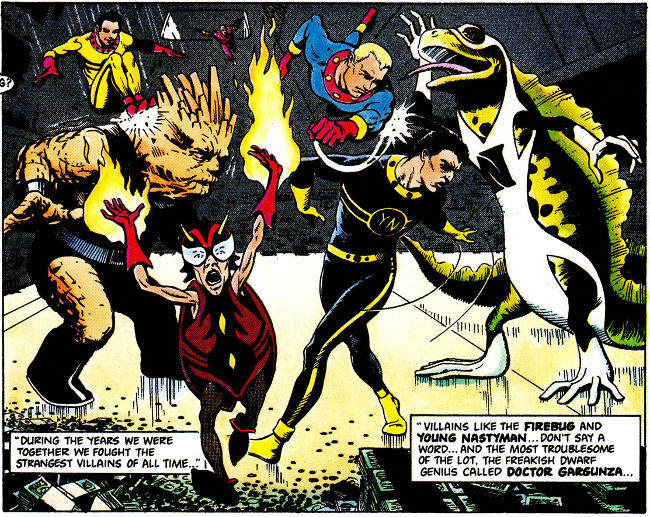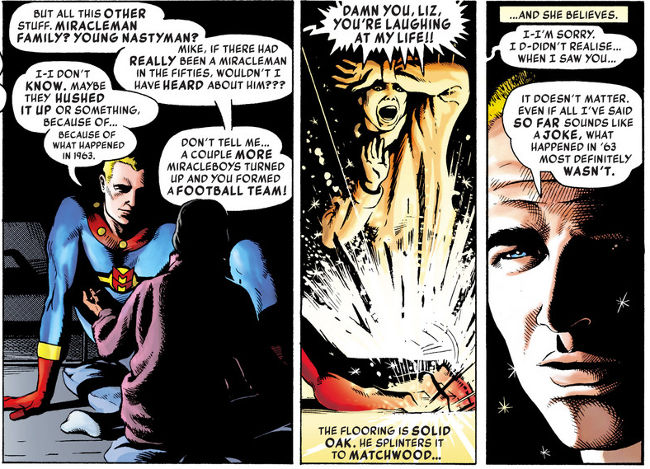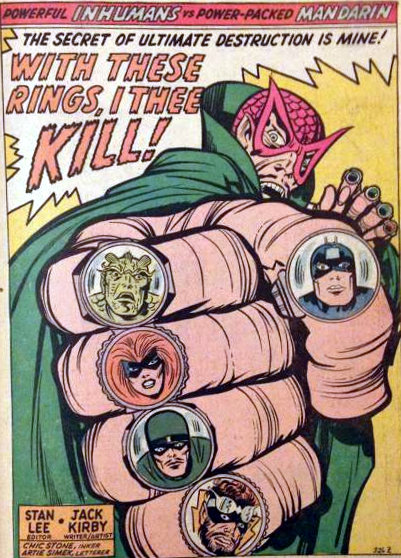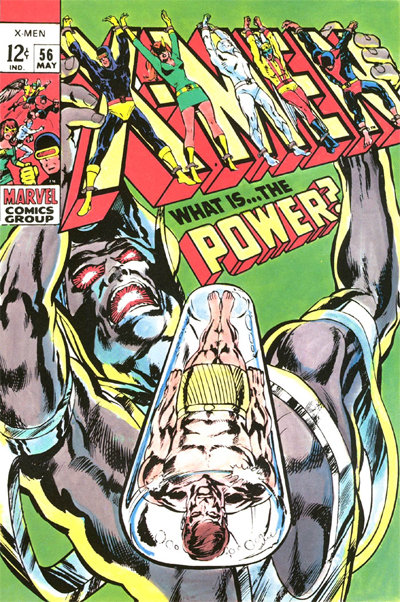Miracleman is an Alan Moore-penned series of comics riffing on Marvelman, the 1950s British version of the 1940s American Captain Marvel. The series was Moore's first big hit in the comix biz, predating Watchmen. After the latter's success in the US, the Marvelman stories were anthologized (in 1990) under the name Miracleman, for various boring legal reasons.
In the series, Moore makes fun of the lameness of the original concept, which featured a "Marvelman Family" including Young Marvelman and Kid Marvelman. In Moore's re-telling, Mike Moran is a lugubrious middle aged investigative reporter who, late in life, accidentally discovers he can turn into Miracleman by saying the word "Kimota" (atomik backwards). He also inexplicably inherits a full suite of Miracleman's memories, which he relates to his incredulous wife of 15 years:

She kids him about these memories, causing a reaction that stays in your mind long after you've read the comic:

"You're laughing at my life!" and the floor shatters to matchwood. Miracleman has a number of these overreactions throughout the story, including his response, below, to certain revelations about his career-long foe, Dr. Gargunza (which I won't spoil). The evildoer is not present for this mind-blowing news, the discovery of which causes Miracleman to yell out his nemesis' name in another arc of pure fury...

...followed by destruction of everything in the room. This is at the end of Book One -- I haven't read Books Two or Three (recently reissued by Miracle, I mean, Marvel). Grant Morrison's excellent writing on comics in the book Supergods reminded me of this series -- I haven't gotten to the part yet where he discusses Miracleman but am looking forward to what he writes.


